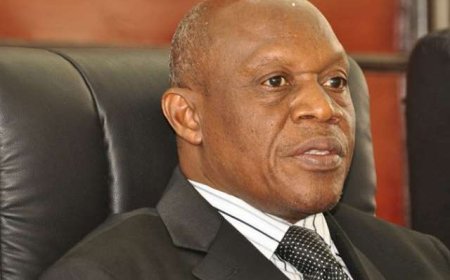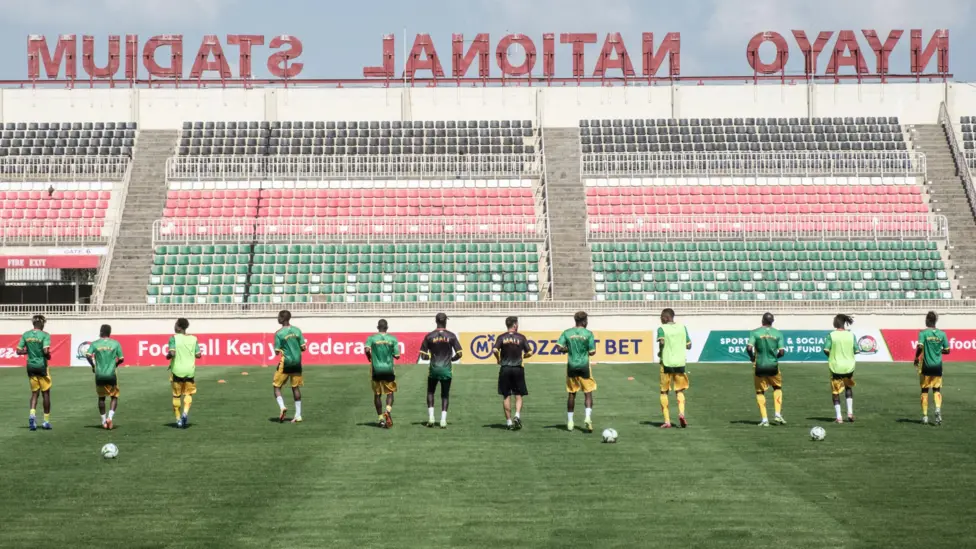The Sustainability Of Pensions – A Security Challenge & A Ticking Time Bomb
The Sustainability Of Pensions – A Security Challenge & A Ticking Time Bomb

In recent times, there have been references to the adequacy of pensions after retirement from active working life for citizens. The adequacy of pension funds and their overall sustainability have been called into question, following the implementation of Ghana’s Domestic Debt Exchange Programme (DDEP).
A pension generally refers to retirement plans that provide some form of income to persons who have stopped working. In Ghana, the retirement age is sixty years and those within the public service are required to compulsorily retire upon the attainment of that age. A pension therefore becomes a form of insurance which provides regular income, however small to support persons who no longer work in regular employment.
In Ghana, the Social Security and National Insurance Trust (SSNIT) is in charge of pensions for employees in the formal sector. The challenge with pensions generally has been that SSNIT catered for only people employed by the formal sector. The informal sector, which has many more people engaged in some form of work, had not, until recently, been on the SSNIT Scheme.
Pensions are generally organised around two main types of schemes, mainly the Defined Benefit Scheme and the Defined Contribution Scheme. The Defined Benefit Scheme (DB) is a pension plan providing a defined benefit formula for calculating benefit amounts without regard to contributions. The benefits a member receives are determined by the amount of his or her salary. In the case of the Defined Contribution Scheme (DC), the contributions are made to an individual account for each participant. The retirement benefit is dependent upon the investment experience and is determined by the value of the fund accumulated at the time he or she retires.
One of the most significant variables affecting the benefit outcome under a DC Scheme is the investment return achieved. This is reflected in the fact that at the end of a typical career of between 30 and 40 years, as much as two-thirds (67%) of the member’s final retirement account could be made up of accumulated investment returns, with just one-third (33%) made up of total contributions paid. Management of investment risks and who bears the investment risks are issues of major importance.
Comparing Defined Benefit and Defined Contribution Schemes
The fundamental difference between a DB Scheme and a DC Scheme is the certainty of the former’s benefits compared with the latter’s exposure to market investment returns. Because future investment returns are not predictable and potentially may be highly volatile, the eventual benefits for individuals may vary significantly from projected outcomes.
Under a DC scheme, the participant bears all the economic and investment risks, even if all required contributions are made on schedule. DB schemes, however, place the risk of benefit delivery on the sponsor; who is the employer in the case of occupational pension schemes, or the State, in the case of social security schemes.
Overview of Pension Reform
In 2004, the President at the time, Mr John Agyekum Kufuor commissioned a Committee on Pensions to examine existing pension arrangements and to make appropriate recommendations for a sustainable pension scheme(s) that would ensure retirement income security for Ghanaian workers, with special reference to the public sector. This was occasioned as a result of agitations by workers for better retirement income. At that time, there were agitations specifically for some workers to be placed on the CAP 30.
The Committee worked assiduously and submitted a report with recommendations for a new Pensions Law. They presented a draft bill which was passed by parliament in 2008. This became the National Pensions Act, (Act 766) which was assented to by the President on 4th December 2008.
The National Pensions Act established a new contributory three-tier pension scheme with a National Pensions Regulatory Authority to oversee the efficient administration of the composite pension scheme with the following;
- a first-tier mandatory basic national social security scheme
- second-tier mandatory fully-funded and privately-managed occupational; and
- a third-tier voluntary fully-funded and privately-managed provident fund and personal pension scheme.
The Future of Pensions in Ghana
The key Pensions Regulatory Institution in Ghana is the National Pensions Regulatory Authority. This institution oversees the operations of SSNIT which manages the first tier and the privately-managed pension schemes for the second and third tiers. The bulk of pension payments, 13.5% goes to SSNIT and is expected to be managed in a manner that would provide income security for pensioners on the attainment of sixty years.
However, without sufficient reserves, SSNIT may not be able to pay the full promised pension benefits to retirees. Retirees could see a reduction in their monthly pension payments or delays in receiving their benefits. In recent times, there have been reports of SSNIT wanting to sell its assets in key hospitality institutions. In addition to this, there have been assertions by some international institutions that SSNIT may be unable to pay benefits from the year 2036 onwards. The International Labour Organisation indicated in a report that the Social Security and National Insurance Trust’s (SSNIT) reserves were likely to hit zero by 2036. (SSNIT reserves to deplete by 2036 – ILO report (citinewsroom.com). In countering this assertion, SSNIT responded that pension payments are not paid from reserves. This notwithstanding, there have been concerns that the pension system is not as secure as expected. Whatever the case may be, there are concerns that SSNIT may have to significantly increase the contribution rates of both employers and employees. This would naturally place a significant burden, that is financial burden on contributors and critically impact economic growth. Already, some concerns have been expressed by key unions, which are tending to erode the confidence in SSNIT. The situation has not been helped by the current economic challenges of the government. Bold and innovative solutions are required to change the narrative and it must happen quickly. At the moment, there is significant doubt about the long-term sustainability of SSNIT Pension payments.
What did the ILO Report Indicate?
The ILO report outlined several factors that underpinned its analysis as follows;
- Increasing Number of Retirees – Ghana’s ageing population has grown bigger as a result of increased life expectancy, and naturally, a big number of pensioners.
- SSNIT’s investment portfolio – It is a well-known fact that SSNIT’s investment portfolio is not generating enough returns of significance to keep pace with the growth in pension obligations.
- Inadequate contributions – it is estimated that the current contribution rates are not enough to sustain the pension scheme in the long run.
- Administration and Governance – it was also stated that there were real issues in areas of administration and governance that were affecting expected outcomes. For instance, SSNIT is said to be overstaffed with a lack of clear autonomy in making key decisions that are beneficial to the fund.
What should be done Going Forward?
The issue of pensions is a national security issue that needs immediate attention. The debt exchange programme has indicated that the investment strategies of pension fund managers and the directives of NPRA have created a major problem. Close to 70% of all tiers two and three funds are invested in government papers. This raises real concerns if the government is unable to pay. This is what is playing out in the fight between the Pensioner Bondholders Forum and the Ministry of Finance led by Dr Adu Anane-Antwi. The group of petitioners invested in government bonds to have a secure retirement. However, on retirement, they have been met with debt exchange and many of them are unable to pay bills and get critical care due to inability to pay. This provides a fertile ground to foment not only political mischief but also some form of insurrection if care is not taken. The issues that have bedevilled Kenya recently give cause for grave concern.
What, therefore, needs to be done?
The country must take pre-emptive action to forestall any trouble as citizens’ pension benefits are a very sensitive issue that could easily constitute a ticking time bomb if not carefully handled. As a matter of urgency, a discussion needs to be had, and consensus built on taking critical actions.
Suggested Actions Include The Following:
- Increasing the contribution rates
- Raising the retirement age to allow for longer contributions and slowing the number of beneficiaries
- Improving investment management
- Ensuring transparency and administrative efficiency
- Professionalising staff
- Convening a pensions conference by the NPRA as part of awareness campaigns and consultations
- Improving the regulatory framework based on extensive consultations by the NPRA executive team and Board.
Conclusion
Ghana’s three-tier pension scheme, which came about as a result of the reforms initiated by President Kufuor is an excellent one. However, an analysis must be undertaken to improve its benefits. The key regulations that deny access to markets outside Ghana for investment need urgent review. A cardinal principle in investing and portfolio management is to spread risk and not put all the eggs in the same basket. Quite clearly, the directive to place the majority of investments in government instruments needs a rethink. Furthermore, because of demographic shifts, changing age profiles and the need to expand coverage, especially by bringing on board the informal sector in huge numbers, careful planning and effective management of investments based on specialised risk models and profiles need to be undertaken. NPRA, in particular, would need to change its approach from authoritarianism to a consultative one, to ensure effective long-term planning for the pensions sector in Ghana. This would forestall the challenges that could potentially arise as a result of the ticking time bomb.

























































